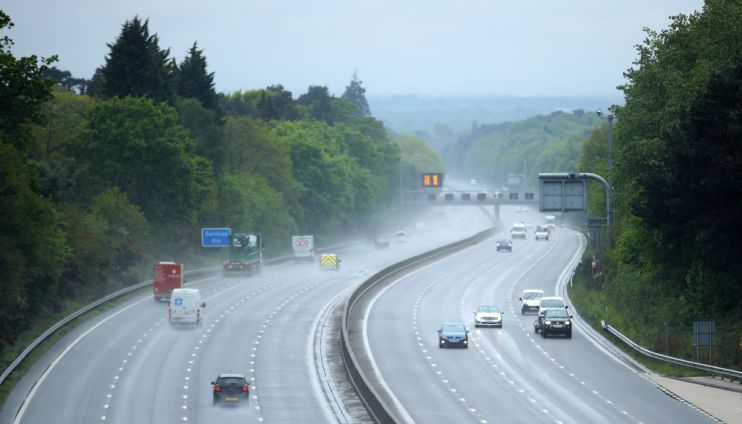Road tax ‘fairer and more popular than fuel duty’

Charging motorists a levy based on the miles they drive would be fairer and more popular than fuel duty, and could even help address the cost of living crisis, according to new research presented in Parliament.
The Social Market Foundation (SMF) argued that a new road-pricing system is urgently needed to make transport policy more fair and fiscally sustainable.
It suggested the growth in electric vehicles – which do not incur fuel duty – will eventually leave the Treasury with a £30bn gap in tax revenue, equal to around two pence on the basic rate of income tax.
To avert that shortfall, ministers must have the “courage” to tell voters that a shift to road charging is “inevitable and sensible”, the organisation said.
The SMF report includes polling showing that more people support (38 per cent) than oppose (26 per cent) road pricing as an alternative to fuel duty.
The poll was carried out by Opinium, with a sample size of 3,000
Former transport secretary Lord George Young has endorsed the report.
Alongside polling, SMF also conducted focus group research which showed that voters regard fuel duty as more unfair than other taxes.
This view is supported by SMF analysis suggesting fuel duty is regressive, falling more heavily on lower-income drivers.
It calculated that even though such motorists drive fewer miles than richer ones, their fuel duty costs make up a greater share of their disposable income.
Public ‘open to innovation’ argues Lord Young
To fill the growing hole in the public finances and address unfairness in roads policy, the SMF suggested ministers should introduce a “simple” national road pricing regime with a fixed per mile charge.
This scheme could be “revenue neutral” – meaning it raises the same sums as fuel duty, but distributes the cost in a fairer, more equitable way.
The report also makes the case for including a free “mileage allowance”, which would be comparable to the tax allowance.
This would mean low-use drivers would not pay any charge and high-mileage drivers would make a contribution proportionate to their use of the roads.
Lord Young said: “The public are open to innovation because they know that the world has changed and will continue to change, so policy must change too. The welcome shift towards electric vehicles raises a clear question about the future of fuel duty levied on petrol and diesel. The unpopularity of that duty has grown steadily too. As this report shows, a well-designed system of road-pricing would be fairer and more popular than the status quo.”
Scott Corfe, SMF research director said: “The costs of driving are a factor in the cost-of-living crisis hitting many households, and fuel duty hits low-income people hardest. Road-pricing would be a progressive alternative, taking some of that burden away from those least able to pay it.”
The SMF report is entitled Miles Ahead. It was supported by a research grant from the European Climate Foundation.
The report comes as ministers prepare to respond to the House of Commons Transport Select Committee, which earlier this year said that government should start work on a road-pricing system “without delay”.